What's new
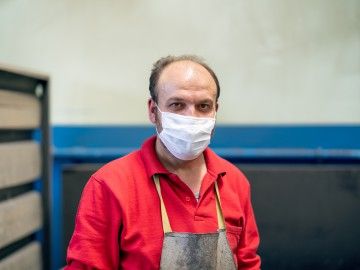
Second study finds COVID-19 protection at work is linked with workers' mental health
Levels of anxiety and depression are higher when workers feel they lack COVID-19 protection on the job. That's according to a study of Canadian workers not in health-care, a second in a pair of studies conducted by the Institute for Work & Health (IWH) and Occupational Health Clinics for Ontario Workers (OHCOW) in the early months of the pandemic. Mental health was even poorer among essential workers who said they had no protection at work than among those who had lost their jobs since the start of the pandemic, according to this second study.

Infographic: Cannabis use at work since 2018 legalization
How have trends in cannabis use changed among workers in Canada since the substance was legalized for recreational purposes in 2018? Findings from the first two surveys of an ongoing IWH project on this question are now available in an infographic.

Now accepting applications for the Mustard and Syme fellowships
Two fellowship programs at the Institute for Work & Health are now accepting applications. The post-doctoral Mustard Fellowship in Work and Health, a two-year appointment for researchers at the post-doctoral level, is open until Friday, December 4. Applications are also being accepted for the S. Leonard Syme Training Fellowship in Work and Health, aimed at early-career researchers at the master's or doctoral level. The deadline for this program is Friday, November 27. Details on submission criteria are on our Opportunities page.

Depressive symptoms and arthritis linked to higher chance of work disability
Research has shown that people with arthritis face difficulties finding work and staying at work. Now, a new study finds that the risks of work disability are even greater for people with arthritis and depressive symptoms—people who account for one in eight working-age adults in the U.S. The IWH study, based on a nationally representative U.S. survey, has been published in Arthritis Care and Research.

Inequalities growing in Canada in rates of early death
Although early death rates have fallen for nearly all socioeconomic groups in Canada, they're falling faster for some more than others. A new study by Dr. Faraz Vahid Shahidi, IWH Mustard post-doctoral fellow, finds inequalities in premature mortality have widened over 25 years between people with the highest and lowest income and education levels.

A new IWH Speaker Series season begins with a presentation on safe work for newcomers
After an extended break due to COVID-19, the IWH Speaker Series is back—this time online only. The new season kicks off on October 13, with a presentation by IWH Associate Scientist Dr. Basak Yanar. She discusses research findings on the safe work integration of newcomers, the perspectives of employers and the experiences of immigrant-serving organizations. To find out more and to register, visit the IWH Speaker Series page.

World Congress 2021 hosting free ‘COVID-19 and OSH’ virtual session in early October
Registraion is now open. On October 5, 2020, a half-day special session on COVID-19 and occupational safety and health (OSH) is being offered by the organizers of the 2021 World Congress on Safety and Health at Work—and IWH is among them as a national co-host of the global event. This free, virtual session will feature thought-leaders discussing innovations in addressing COVID-19 in the workplace, how the future of work is being shaped by the global pandemic, and the relevance of promoting a culture of prevention to address COVID-19. Additional sessions are also being organized for October 6, 2020.
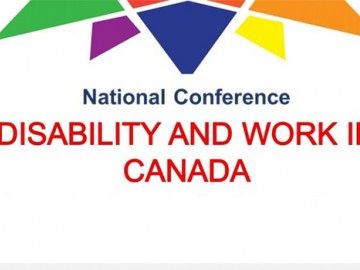
Call for proposals: Disability and Work in Canada 2020 Virtual Conference
The Disability and Work in Canada 2020 (DWC 2020) Conference will be held virtually this year over four days in late November and early December. Organizers are accepting proposals for different types of sessions from the disability community, businesses, unions, policy-makers, service providers and other interested parties. The call is open until Friday, September 25.

Three methods to reduce silica dust in construction: comparing the costs and benefits
Silica dust is responsible for 570 cases of lung cancer in Canada a year; the majority of these are diagnosed in construction workers. Construction workplaces can use different methods to protect workers from exposure to silica dust, but which methods should they opt for? A cost-benefit analysis led by the Institute for Work & Health offers some guidance.

Exposure to known hazards a factor in injury reporting: Institute study
What factors may be linked to workers reporting or not reporting their work-related injuries to a workers’ compensation board? An Institute for Work & Health (IWH) study, building upon previous research on rates of under-reporting, finds workers are more likely to report their injuries when they are exposed to known hazards or have greater awareness about occupational health and safety.

What research can do: Estimating the role of workplaces in COVID-19 transmissions
What percentage of COVID-19 infections in Ontario were associated to exposure at work during the first six months of the pandemic? Despite important gaps in information, we can make an educated guess using two provincial data sources, writes the Institute for Work & Health (IWH) President and Senior Scientist Dr. Cameron Mustard.

IWH Updates - Summer 2020
IWH has a new address ~ World Congress 2021 hosting free ‘COVID-19 and OSH’ virtual session in early October ~ IWH Accomplishment Report now out

Episodic health conditions challenge workplace disability management systems
Employers are recognizing that they need a new model of disability management to support workers with episodic health conditions, according to a new Institute for Work & Health study. These conditions, which are characterized by periods of good health interrupted by unpredictable periods of illness and disability, can raise a host of issues for workplaces—including issues related to privacy, stigma and trust.

We've moved!
After nearly 20 years at 481 University Avenue, the Institute for Work & Health (IWH) had to move out to make way for a 55-storey condominium. We didn't go far. We’re still in the same Toronto neighbourhood, close to the Dundas Street and University Avenue intersection. As of August 2020, our new address is:
Institute for Work & Health
400 University Avenue, Suite 1800
Toronto, ON M5G 1S5
Our phone and fax numbers remain the same.

Urban-rural differences in work disability days not always as expected
We know from past studies that injured workers in rural areas are likely to be off work longer than injured workers in cities. Now, a study involving IWH scientists takes a closer look at urban-rural differences in work disability across several provinces and industrial sectors. It finds a more nuanced picture, one in which injured workers in the more rural areas are not necessarily the ones with the longest disability durations.

Review summary explores relationship between work and osteoarthritis
Bending, kneeling, climbing or lifting. Which of these work activities, among others, are associated with a greater risk of osteoarthritis (OA) in men and women? A systematic review conducted by IWH—the first to include a wide range of joints affected by OA—are now summarized in our latest Sharing Best Evidence.

5 Things We Think You Should Know
Every year, we pull together five of IWH's most practical research findings from the past year for professionals in occupational health and safety (OHS). The 2020 edition of 5 Things We Think You Should Know is now available. What five key health and safety findings did we choose for you this year?

How IWH research is adapting to reflect COVID-19 context
It will likely take time for researchers, workplace parties and policy-makers to understand the impact of the COVID-19 pandemic on the intersection between work and health. Here at the Institute, several ongoing studies are being adapted to reflect new pandemic realities.

Supporting settlement agencies to provide OHS information to newcomers
Newcomers to Canada face a higher risk of workplace injury and illness. That’s due in part to a lack of knowledge about their occupational health and safety (OHS) rights and responsibilities. Settlement agencies can help raise this awareness, but they also need support from the prevention system to do so. That’s according to a recent project involving IWH and several partner organizations.

Anxiety levels among health-care workers during COVID-19 linked to inadequate PPE
Nearly six in 10 surveyed health-care workers in Canada reported anxiety at levels surpassing an accepted threshold for clinical screening for the condition. Workers who reported more unmet PPE needs also reported higher levels of anxiety, according to a study by the Occupational Health Clinics for Ontario Workers (OHCOW), with analytical support from IWH.

IWH Updates - Spring 2020
Research associate joins scientist ranks ~ Dalla Lana alumni award goes to IWH scientist ~ CIHR scholarship awarded to IWH PhD student ~ World Congress 2020 rescheduled to 2021
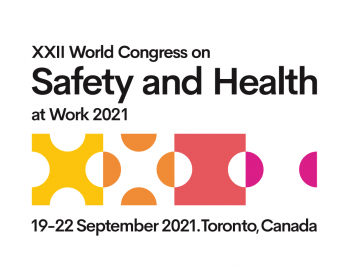
XXII World Congress on Safety and Health at Work now taking place in September 2021
In light of public health guidance regarding COVID-19, the International Organizing Committee (IOC) of the XXII World Congress on Safety and Health at Work has made the difficult decision to postpone the event, which will now take place September 19 – 22, 2021. The good news is that the Congress will still take place at the Metro Toronto Convention Centre in the heart of downtown Toronto, Canada, exploring the Congress theme Prevention in the Connected Age: Global solutions to achieve safe and healthy work for all. The Congress is also being expanded to include virtual options, including live streaming to facilitate further global engagement.
Given the impact of COVID-19 on workplaces around the world, the IOC has also decided to convene a virtual meeting of global thought leaders focused on COVID-19 on October 5, 2020. More information about this meeting and how to participate will be posted to the Congress website in the coming weeks.

Accommodating episodic disabilities—a Lancaster House audio conference featuring Dr. Monique Gignac
What are the most common challenges in accommodating workers with episodic disabilities? How should key communication challenges be dealt with? What types of accommodations are generally helpful to workers with episodic disabilities? These are just some of the questions examined at a May 14 audio conference hosted by The Lancaster House, featuring Institute for Work & Health Scientific Co-Director and Senior Scientist Dr. Monique Gignac and several leading labour lawyers.
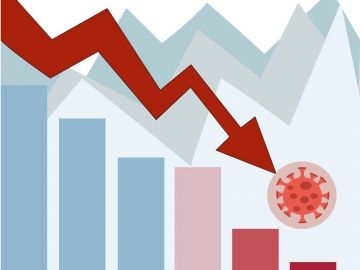
What research can do: How IWH research is responding to COVID-19
There is little debate that COVID-19 is dramatically affecting the work and health of people in Canada and around the world, in many different ways. Conducting research to understand the experiences of workers, and the effects of the pandemic on their physical and mental health, is essential. We at the Institute for Work & Health (IWH) have begun adjusting our research to address the impact of COVID-19 on different types of work and workers.

What has changed in the use of cannabis since legalization?
How much has changed in workers’ consumption patterns since recreational cannabis was legalized in October 2018? Early findings from an ongoing IWH study indicate use at work has stayed the same—with one in 12 workers reporting using cannabis at work, during work breaks or two hours before work.

Coronavirus: The risks to essential workers with hidden health conditions
The COVID-19 pandemic has left many in Canada’s workforce worried about their health and finances. Those worries are even greater for workers living with an underlying and invisible chronic health condition. In this op-ed, IWH Scientist Dr. Arif Jetha cautions that we can’t forget about workers who have invisible health conditions.

Take a moment to mark the Day of Mourning
Tuesday, April 28, is National Day of Mourning. The day is observed every year to commemorate workers who have been killed or injured on the job. This year, due to social distancing measures, many of the day's events are held online. Find listings from select organizations on our event page.

COVID-19 concerns greater for workers with health conditions
The COVID-19 pandemic has left many in Canada’s workforce worried about their health and finances. Those worries are even greater for workers living with an underlying and invisible chronic health condition. In the planning of health and safety responses to COVID-19 and the ultimate reopening of workplaces, employers should be aware of the unique needs of this potentially vulnerable group of workers, writes IWH Scientist Dr. Arif Jetha in The Conversation.
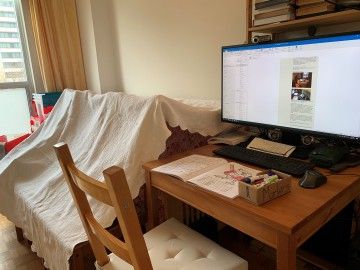
Setting up a temporary home office in a time of social distancing
Working at home in the middle of a COVID-19 pandemic means having no time and little opportunity to set up ergonomically sound workstations. So what can office workers do to make their kitchen table workspaces as comfortable as possible? We turn to Dr. Dwayne Van Eerd, who co-led the development of eOfficeErgo, for advice.